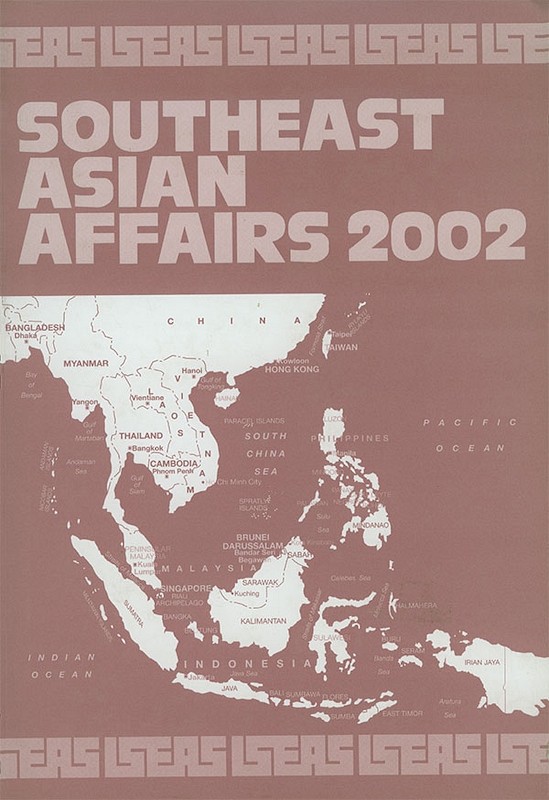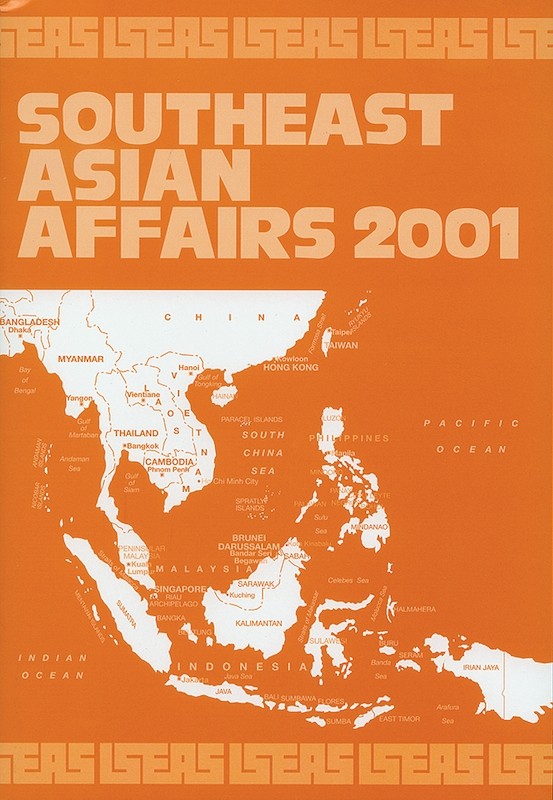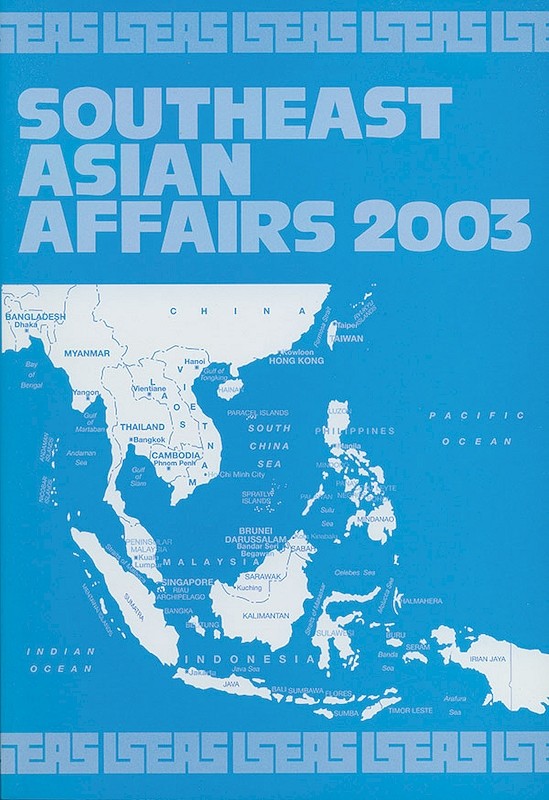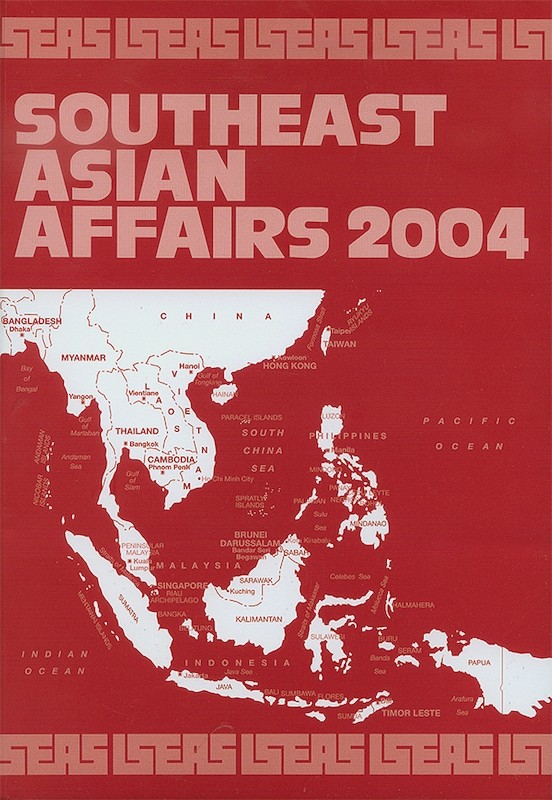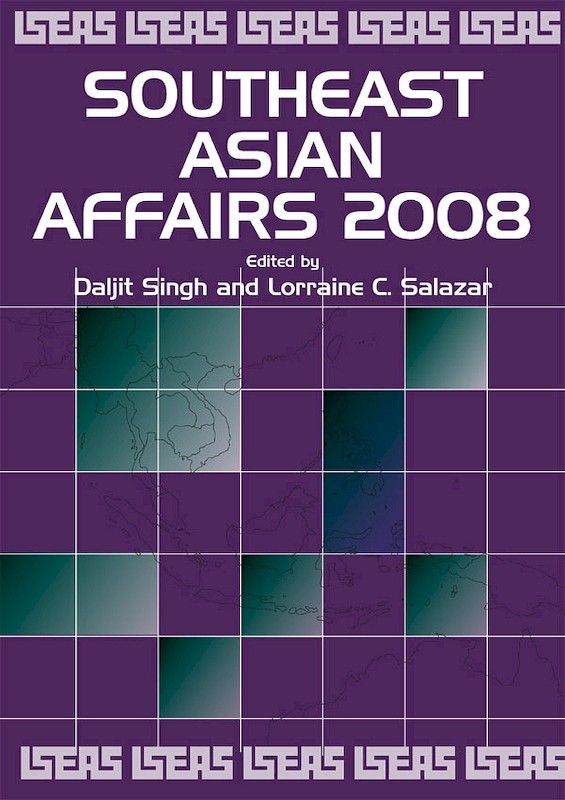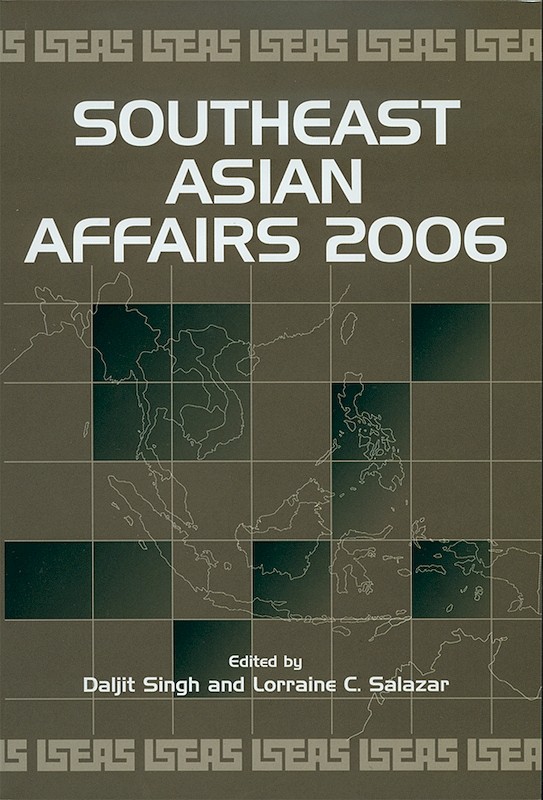Southeast Asian Affairs 2000
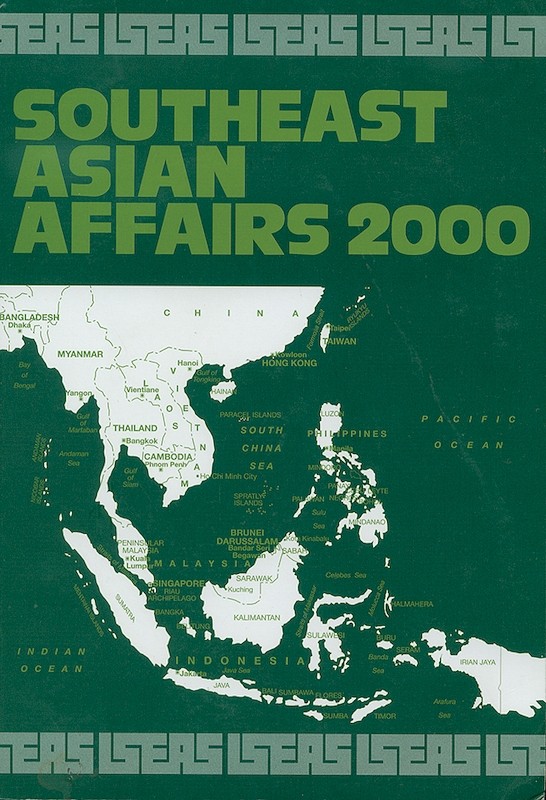
About the publication
Southeast Asian Affairs, of which there are now twenty-seven in the series, is an annual review of significant developments and trends in the region. Though the emphasis is on ASEAN countries, developments in the broader Asia-Pacific region are not ignored. Readable and easily understood analyses are offered of major political, economic, social, and strategic developments within Southeast Asia.
The contributions can be divided into two broad categories. There are those which provide an analysis of major developments during 1999 in individual Southeast Asian countries and in the region generally. Then there are the theme articles of a more specialized nature which deal with topical problems of concern.
This volume contains nineteen articles, dealing with such major themes as international conflict and co-operation, political stability, and economic growth and development.
The contributions can be divided into two broad categories. There are those which provide an analysis of major developments during 1999 in individual Southeast Asian countries and in the region generally. Then there are the theme articles of a more specialized nature which deal with topical problems of concern.
This volume contains nineteen articles, dealing with such major themes as international conflict and co-operation, political stability, and economic growth and development.
Contents
-
Preliminary pages
[Whole Publication] -
1. Southeast Asia in 1999: A False Dawn?, by Daljit Singh, author see abstractThis article provides a political and security overview of Southeast Asia in 1999, examining in the process the difficulties facing ASEAN; developments in the strategic environment, including in the South China Sea; and issues of political change.
-
2. Southeast Asia: Towards a Sustained Recovery?, by Anne Booth, author see abstractThis article assesses the state of the Southeast Asian economies most affected by the regional economic crisis and examines the economic future of the region over the next few years, including the longer term implications of the crisis for economic management throughout the ASEAN region.
-
3. How Valid Are the South China Sea Claims under the Law of the Sea Convention?, by Jon M Van Dyke, Mark J Valencia, authors see abstractThis article examines the South China Sea claims under the United Nations Law of the Sea Convention in relation to issues like sovereignty, boundary delimitation, EEZs, continental shelves, territorial seas. It concludes that each of the claims has significant weaknesses under international law.
-
4. The East Timor Crisis: A Test Case for Humanitarian Intervention, by Leonard C Sebastian, Anthony L Smith, authors see abstractThe article traces humanitarian intervention in East Timor in 1999, starting with the work of UNAMET, through INTERFET and UNTAET. Finally it looks at the development prospects of East Timor and its place in the broader geopolitical surroundings.
-
5. Brunei Darussalam: Weathering the Storm, by Mohamad Yusop bin Awang Damit, author see abstractThis overview covers the effects of the economic slowdown in Brunei, the main socio-political developments and foreign affairs.
-
6. Cambodia: Hun Sen Consolidates Power, by Milton Osborne, author see abstractThis article looks at the factors behind the improved political stability and the modified political persona of Hun Sen, the issues involved in possible trials of Khmer Rouge leaders, and developments in the fields of foreign policy, economy, and environment and health.
-
7. Indonesia: Democratization and the Threat of Disintegration, by Harold Crouch, author see abstractThis article provides a survey of Indonesia in 1999, examining in the process the electoral laws adopted in January, the general election in June, the Presidential election and the new government later in the year, and the `loss' of East Timor. It also analyses the prospects for national disintegration and the role of the military in the new Indonesia.
-
8. The Indonesian Economy under Abdurrahman Wahid, by Hadi Soesastro, author see abstractThis article sets out the main challenges the Abdurrahman Wahid administration faces in the economic arena, and then examines the institutional setting and the policy agenda of the government at the beginning of 2000.
-
9. Laos: An Episode of Yo-Yo Economics, by Yves Bourdet, author see abstractThis article looks at the legacy of the Sixth Party Congress, the economic policy failures after 1997, the effects of the Asian crisis, the implications of the integration of Laos into the ASEAN Free Trade Area, and the reasons behind macroeconomic fluctuations.
-
10. Unfinished Crises: Malaysian Politics in 1999, by Khoo Boo Teik, author see abstractThis article looks at the Anwar Ibrahim trial, the meanings of Reformasi, and the emergence of Barisan Alternatif, before examining the general election in November. It also has sections on the human, economic and political dimensions of an epidemic among pigs which took 104 human lives; and on Malaysia's economic recovery strategy.
-
11. Malaysia's Alternative Approach to Crisis Management, by Mahani Zainal Abidin, author see abstractThis article is a well informed account of the measures Malaysia adopted to overcome the economic crisis. It also assesses the sustainability of the recovery and the challenges ahead.
-
12. Myanmar: Political Stasis and a Precarious Economy, by Tom Wingfield, author see abstractThis article analyses political developments in 1999, including the impasse between the military and the National League for Democracy. It also deals with the economic woes of the country and the state of education.
-
13. The Failure of Myanmar's Agricultural Policies, by Peter G Warr, author see abstractAgriculture is central to Myanmar's poor economic performance. Agricultural growth has been declining since 1995 and yields have been static. The article examines critically a surprising response of the government to the problem. Finally he considers the reforms that are most urgently needed.
-
14. The Philippines: Governance Issues Come to the Fore, by Miriam Coronel Ferrer, author see abstractThere has been growing disappointment over the poor national leadership in view of controversial appointments, mismanagement, and poor tie-up with the legislature. Delays and contoversies have also marred the Administration's pro-poor programmes. There has been a revival of Muslim and communist rebel activity.
-
15. Singapore: A Vision for the New Millennium, by Jasmine S Chan, author see abstractThis article examines the Singapore 21 Report and issues like the position of women, multiracialism and civil society in the context of the government's vision for Singapore for the new millennium. It also looks at the Elected President and Singapore's relations with its nearest neighbours during 1999.
-
16. Singapore: Information Technology for an Intelligent Island, by Arun Mahizhnan, author see abstractThis article is a description and analysis of the application of information and communications technologies in Singapore, including the development of the electronic infrastructure for these technologies, electronic commerce and the changes in the education system.
-
17. Thailand: Farewell to Old-Style Politics?, by Suchit Bunbongkarn , author see abstractThe old style politics showed no sign of demise, at least not immediately. While the public was not happy with the government's economic and political performance, it continued to support Chuan because of his integrity. The article looks at coalition politics, the politics of economic reform, the increasing strength of civil society and foreign relations.
-
18. The Thai Economy: Stabilization and Reforms, by Pichit Likitkijsomboon, author see abstractThis article looks at the Thai economy in 1999 before dealing with corporate debt and financial sector restructuring and measures to encourage private investment. Finally it examines the critical economic reform issues in Thailand.
-
19. Vietnam: The Politics of Immobilism Revisited see abstractThis article examines the reasons behind the failure to carry out bold new economic reforms, developments in the party, and foreign relations, especially United States-Vietnam relations and Sino-Vietnam relations. The party will be preoccupied with internal matters in the build-up to the ninth party congress scheduled in March 2001.

